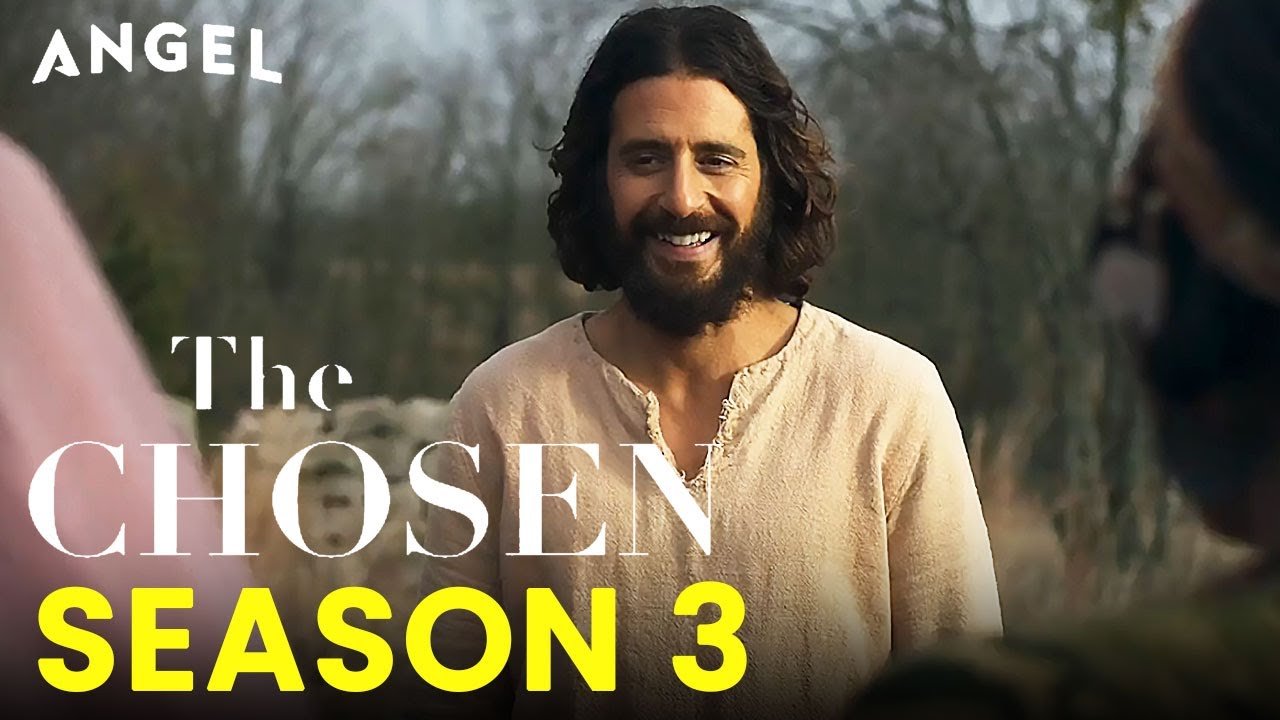Jesus Is the Law of Moses? Did The Chosen Get This Right?
/Have you seen the season-three trailer for The Chosen? At the pinnacle moment of the trailer, when the building-music drops, a Pharisee threatens, "Jesus, if you do not renounce your words, we will have no choice but to follow the Law of Moses." Pause. Lean in. Wait for it... "I am the Law of Moses," says Jesus.
It's dramatic, but is it biblically accurate? Is Jesus the Law of Moses?
Of all the "I am" statements in the Bible, does Jesus ever say, "I am the Law"? No. He says all the Law and Prophets speak of him. He obeyed the Law perfectly in our place to redeem us. He fulfilled the Law completely. He faced the wrath promised in the Law. But he did not ever claim he was the Law.
Given that Jesus said, "unless your righteousness surpasses that of the scribes and Pharisees, you will never get into the kingdom of heaven," we should think he wanted the Pharisees to follow the Law of Moses. If they weren't following it, they were disobedient. Jesus regularly called the Pharisees out for not following the Law of Moses. When asked about the Law, Jesus summarized it by saying it's loving God with all of our heart, mind, soul, and strength and loving our neighbors as ourselves" (Matthew 22:34-40 and Mark 12:28-34). Any moment we don't do this is a moment we're in sin, not following the Law. So while not as dramatic, maybe Jesus should have replied, "Yup, that's what I have been wanting all along."
But this still leaves us with the question, is Jesus' line in The Chosen, "I am the Law of Moses," theologically correct?
Hebrews 10:1-4 teaches the Law is but a shadow of the good things to come, falling short of saving us from sin or perfecting worshipers. The Law cannot and does not save us, but instead exposes our sin and our need for a Savior (see Romans 7). Romans 8:4 tells us God did what the Law could not do. If Jesus is the Law, then how did Jesus 'as the Law' fail? What could he not do? He didn't fail, and these verses juxtapose the Law and Jesus. Romans 8:2 says Jesus has set us free from the law of sin and death (talking about the Law of Moses.) If Jesus is the Law, like The Chosen trailer suggests, then this would be saying Jesus sets us free from Jesus. That is NOT what Romans 8:1-4 is teaching. Instead, we learn that Law condemns sin in the flesh, which demands our death. Yet, where we were sentenced under the Law because we fell short of the Law's requirement, God sent Jesus to live the Law perfectly and then be condemned under the Law in our place. In taking the full punishment of the Law, Jesus fulfilled the Law. (See also Romans 5.) Biblically speaking, it just doesn't line up to say Jesus is the Law.
Now, the Bible does say Jesus is the Word, the revelation of the living God to his creation (John 1:1), but that is by no means the same as suggesting Jesus is the Law. Jesus is not the Law. There is a clear contrast between the Old and the New Covenants. There is a compelling difference between the Law that "came along to multiply the trespass" and the grace reigning "through righteousness, resulting in eternal life through Jesus Christ our Lord" (Romans 5:20-21).
Maybe The Chosen line is Hollywood flair, designed to entertain by eliciting emotion. Perhaps it's intended to keep Jesus' character from looking weak (which would also be biblically problematic). Or maybe the line is a direct quote from the Book of Mormon that says, "Behold, I am the law, and the light" (3 Nephi 15:9a).
No matter the case, this theological confusion is no small thing.
This claim is not a matter of acceptable artistic license, like which side of the boat Peter walked off or how clean their clothing might have been. Confusing Jesus' relationship to the Law of Moses will also cause confusion about justification, substitutionary atonement, grace, salvation, and who the biblical Jesus claims he is. It's a big question. It's a serious theological matter and one worth getting right.
* Copyright image used under the fair use provision for criticism and critique.

